Melissa’s Dream Home
Melissa Wright’s Raleigh house wasn’t just a building—it was the product of years of sweat and sacrifice. As soon as she started working, she saved every penny to buy that modest home eighteen years ago.


It was her sanctuary, filled with memories of family gatherings and quiet Sunday mornings. For Melissa, it symbolized hope and stability after years of struggle as a single mother to her daughter, Sadie. Every creak of the porch echoed her pride, and she vowed to protect this dream, no matter what came her way.
A Life of Hard Work
From dawn until dusk, Melissa juggled a demanding job to keep her home and family afloat. Her days at the nursing home were grueling, yet she gave her best with a smile.


Even when exhausted, she tended the garden and repaired anything broken, determined not to lose what she had earned. Her resilience wasn’t just about survival—it was about dignity and hope for a better tomorrow.
In Her Neighborhood
Melissa’s neighborhood was a tight-knit community filled with families, children playing in yards, and neighbors chatting over fences. She belonged here, a friendly face often lending a hand or sharing a story. Everyone knew Melissa as hardworking and kind, always ready to help plan block parties or check on elderly neighbors.


Yet beneath the occasional smiles, small disagreements with the Homeowners Association simmered, barely noticed in the hum of everyday life.
A Quiet Frustration
Melissa first noticed HOA letters in the mailbox months ago—friendly reminders at first. “Trim your bushes,” “Bring in your trash bins after collection day.” Small, manageable requests, she agreed to promptly. However, over time, the warnings increased, with more letters that Melissa didn’t bother to open and then frequent messages on the neighborhood chat group.


Her frustration grew. She didn’t understand why simple mistakes were punished so harshly. Still, Melissa tried to follow every rule, wanting peace and harmony—but the tension with the HOA slowly crept into her daily routine.
A Community Divided
Word of Melissa’s struggles spread in the neighborhood. Some sympathized deeply, remembering when the HOA was less strict and more neighborly. Others sided with the association, valuing order and regulations above all.


Melissa found herself at the center of a silent but growing dispute. Despite the division, she stayed focused on her home, determined to protect what she had built over the years. The looming conflict remained just beneath the surface, waiting for the right moment to explode.
Holding On Tight
Melissa cherished the quiet mornings in her garden, a space she lovingly tended over the years. Despite long, exhausting hours working her job, her home was a reflection of her commitment and care. Every flower blooming was proof of her perseverance.


Yet beneath her calm exterior, the growing tension with the HOA lingered as an unwelcome shadow, a quiet reminder that the security she felt was fragile and could be taken away with a single call.
Unexpected Trouble
One afternoon, Melissa received an official letter from the HOA, stating she owed money for a fine. Confused and worried, she read the notice carefully. The fine amounted to thousands—$3,500 for supposed violations she wasn’t even aware of.


“This can’t be right,” she whispered. She tried to call the HOA board for answers, but her questions were met with cold formality and little clarity. The financial burden felt impossible, but she refused to let her home slip away without fighting.
A Community Portrait
Melissa’s neighbors admired her strength, but some supported the HOA’s strict policies. The neighborhood had changed over the years—once a welcoming place, it was becoming more divided.


Melissa often found herself caught between friendships and disputes over rules and fines. Yet despite the growing tension, she tried to focus on what truly mattered: her home and the life she built. The fine was a dark cloud, but Melissa’s spirit remained her light through the storm.
Seeking Help
Weeks after receiving the fine, Melissa met with a local legal aid volunteer. The advice was clear but discouraging—if unpaid, HOA fines could quickly spiral into legal action. Melissa drafted letters appealing for leniency, explained her financial hardship, and asked for a payment plan.
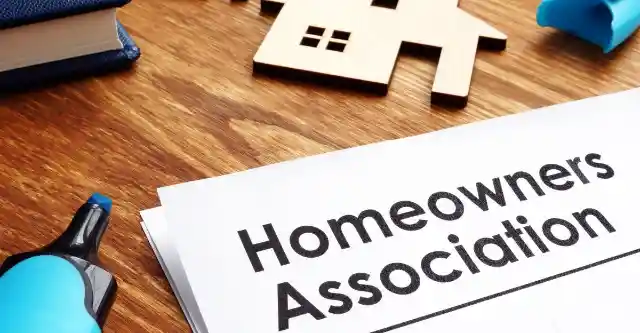
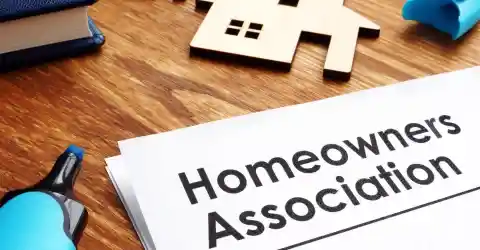
The HOA responded with form letters, refusing negotiations. Each rejection tightened their grip on her. Melissa’s world began to shrink, her fight for her home turning from hopeful to desperate.
Endless Paperwork
Melissa spent nights buried in paperwork—copies of messages, fine notices, and legal forms piled high on her kitchen table. Sleepless and stressed, she balanced these battles alongside her exhausting job.


Each bill felt heavier than the last, and the $3,500 fine was a looming threat overshadowing everything. She clung to the memories in her home, reminders of years of hard work and sacrifice. Giving up wasn’t an option, even if the weight of the fight threatened to break her.
The Final Notice
One morning, Melissa opened a letter that would change everything. The HOA sent her a final notice, saying that she only had a few days to pay up or else. Shock and confusion overwhelmed her.


Were they threatening her now? The letter was formal and strict, leaving little room for negotiation. The words “Final Notice” were printed in bold red letters. Melissa’s mind raced, trying to grasp the magnitude of this final notice letter. Her peaceful life suddenly felt threatened by an authority she hadn’t fully challenged before.
Conflicted but Determined
Melissa struggled to believe the fine was fair. She reread the HOA rules and tried to identify the alleged violations. Some notices cited small landscaping issues, others pointed to maintenance concerns she didn’t agree with.


Determined to rectify the matter, Melissa began meticulously documenting every detail—photos, receipts, correspondence—it was a race against time to prepare her case. The battle lines were drawn, but Melissa refused to back down, even as doubts crept in.
Seeking Advice
Worried and overwhelmed, Melissa reached out to a local community legal aid organization. The volunteers explained her rights and the process to appeal an HOA fine in North Carolina. They emphasized the importance of understanding the HOA’s governing documents and gathering evidence.


While hopeful, Melissa faced the reality: the HOA held significant power, and the appeal process might be long and uphill. Still, armed with knowledge, she was never prepared for what would happen next.
Forced to Leave
Despite Melissa’s fierce legal fight, the HOA proceeded with foreclosure following court approval. One cold morning, sheriffs arrived with the HOA’s representatives.


Melissa and her daughter packed hurriedly as the locks on their beloved home were changed. The reality hit hard—they were forced out after 18 years. With nowhere else to go, Melissa turned to relatives nearby. The small, crowded house became their temporary refuge, a stark contrast to the life they had built.
Life with Family
Living with relatives was a humbling experience for Melissa and her daughter. Space was tight, and privacy scarce, but love and support helped them endure.


Melissa’s days were split between taking care of Sadie, work, and legal consultations, and she was determined to reclaim her home. Each night brought stories of resilience and hope, though the pain of displacement lingered. The fight wasn’t just about a house; it was about dignity, family, and standing against injustice, no matter the cost.
Notice of Hearing
Then, Melissa received another letter, an official notice—an opportunity to attend a hearing to present her side. She felt a flicker of hope. Finally, a chance to talk directly to the HOA board.


She spent days carefully preparing, rehearsing her points, and gathering proof that some fines were unfair or inconsistent compared to others in the neighborhood. Yet, beneath the hope, tension simmered. The HOA’s rigid reputation made her anxious about the hearing’s outcome. However, things would not go as Melissa had hoped and planned.
A Harsh Verdict
The hearing ended with disappointment. Despite Melissa’s evidence and calm arguments, the board upheld the full $3,500 fine. They cited bylaws and past warnings, showing little leniency.


“This is it. I’m never going to get my house back,” Melissa thought, heart sinking. The fine was due, or else the HOA would take action. She left the meeting with mixed emotions: anger, desperation, but also a steely resolve to fight further. The real battle wasn’t over—and neither was her hope for payback.
Gathering Support
Following the harsh verdict upholding the $3,500 fine, Melissa knew her next step was filing an appeal. She pored over the HOA’s governing documents, known as CC&Rs, seeking any inconsistencies. Melissa wasn’t alone in her fight. Neighbors began sharing stories of their own petty disagreements with the HOA. Many had faced fines for minor infractions but feared backlash for speaking out.


Melissa’s courage slowly inspired others to stand up. A small group organized to attend the hearing together, acting as witnesses for fairness and consistency. The sense of community strengthened Melissa’s resolve—she was no longer isolated in this battle.
Face to Face
The day of the hearing arrived. Melissa faced the HOA board members in a tense, sterile meeting room. She presented her case with passion but respect, highlighting her community contributions and the inconsistencies in how the fines were applied.
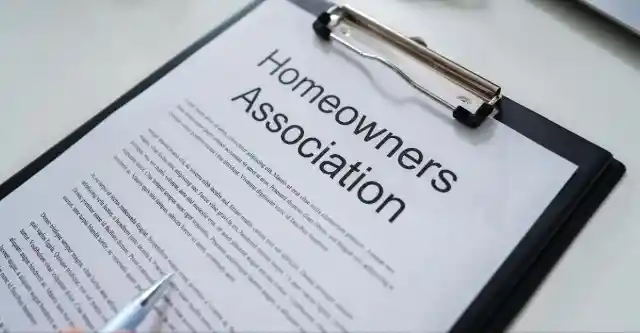
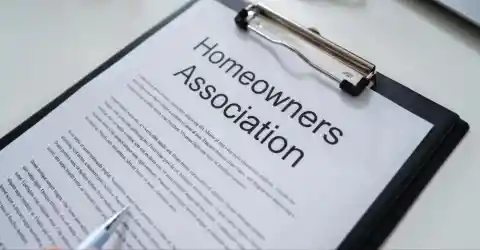
Board members listened but remained stoic. Melissa understood that the hearing was not just about rules—it was about power and control. Her heart pounded, yet she stood firm, determined to protect her home.
Waiting for the Decision
After the hearing, Melissa waited anxiously for the board’s decision. Days turned into weeks with no communication. The silence tore at her nerves. Finally, a letter arrived—the board had upheld the $3,500 fine in full.


Defeat washed over her, but she refused to surrender. The fight was far from over. Melissa began exploring every option—legal, public pressure, and beyond—to reclaim justice and save the home she had fought for all these years.
Legal Counsel
Melissa sought legal advice after the HOA upheld the hefty fine. A local attorney explained the complex procedure to contest fines in North Carolina—appealing through courts and possibly suing for unfair treatment.


Despite the daunting legal fees, Melissa knew professional help was essential to mounting a real defense. The lawyer also suggested publicizing the story to stir community support. Armed with both legal counsel and growing neighborhood backing, Melissa renewed her determination to fight the HOA’s overreach.
Taking It to Court
With her lawyer, Melissa filed a lawsuit challenging the foreclosure and the legality of the fine. The case shed light on HOA practices, including inconsistent rule enforcement and improper fines.
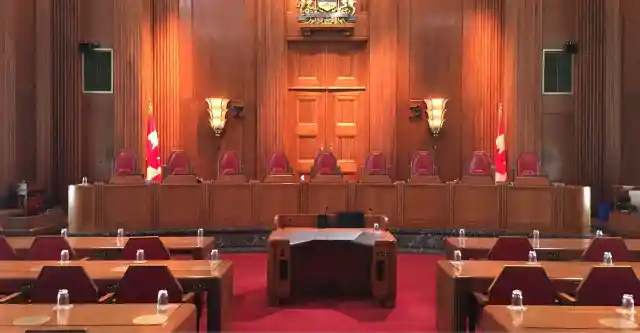
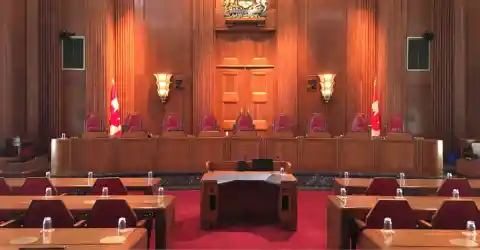
Court proceedings brought tension and stress, but also hope. Melissa’s story began drawing media attention, highlighting the plight of homeowners facing aggressive HOAs. The battle escalated beyond her neighborhood, sparking wider conversations on homeowner rights versus HOA powers.
The HOA Pushback
The HOA didn’t back down. They countersued and flooded the court with documentation defending their actions. Their legal team painted Melissa as a non-compliant resident, ignoring community norms.
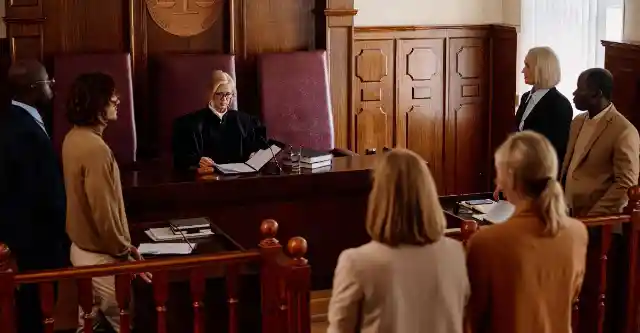
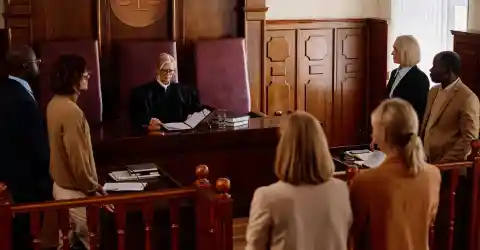
The aggressive stance shocked many in the neighborhood but galvanized supporters of Melissa’s cause. The fight was no longer just about one woman’s home; it had become a symbol of resistance against heavy-handed HOA control.
Community Rally
Local activists and homeowners rallied behind Melissa. A grassroots campaign organized fundraisers to support her legal fees and raised awareness about HOA abuses.


Neighborhood meetings buzzed with plans for reform and greater transparency. Melissa became a community leader, advocating for fair treatment of residents. The fight brought unity where there had been division, with many recognizing the risks of unchecked HOA power in their own lives.
The Turning Point
During discovery, Melissa’s lawyers uncovered records proving the HOA’s failure to notify her properly and inconsistent fine applications against others. This evidence weakened the HOA’s case tremendously.


The court scheduled a mediation session, encouraging both sides to reach an agreement. For the first time, the possibility of a fair resolution felt within reach. Melissa’s persistence and growing legal support had shifted the balance, offering hope that justice might finally prevail.
Legal Status and Rights
Melissa learned that North Carolina law protects homeowners’ rights in HOA disputes. The law requires HOAs to follow due process and imposes limits on fine amounts, typically capping fines at $100 per violation per day.


Retroactive fines are illegal. Understanding this, Melissa realized the $3,500 fine might be unlawful. She carefully studied these legal protections and prepared to use them in her fight against the HOA’s excessive demands, knowing knowledge was her strongest weapon.
Filing the Formal Appeal
Melissa submitted a formal written appeal to the HOA board within the allowed timeframe, citing inconsistencies and the law’s limits on fines. She outlined how the HOA’s actions violated governing documents and state regulations.


The appeal included photos, previous communication, and proof that other homeowners had not faced such severe penalties for similar issues. This was her official stand—a plea for fairness and justice in the face of overwhelming odds.
The Hearing Invitation
The HOA board scheduled a hearing to consider Melissa’s appeal. She prepared meticulously, practicing how to calmly present her points and highlighting her good faith efforts to comply with community rules.


Attendance was mandatory; this was her chance to influence the HOA’s decision directly. Melissa hoped the board would listen to reason, but she remained cautious. The power imbalance was clear, and the stakes were higher than ever.
The Hearing Day
On the day of the hearing, Melissa arrived early, documents in hand and heart pounding. She calmly explained her side, emphasizing her history of responsible ownership and the unfairness of the fine.


The board members asked questions but remained firm. Melissa stood her ground; she was going to get her house back, no matter what. It was now up to the court. All the time she spent fighting them was not going to go to waste. What would the court’s decision be?
Victory
Melissa’s long fight finally reached a triumphant end when a North Carolina court ruled in her favor. The judge found the HOA had overstepped its authority by imposing an excessive $3,500 fine and failing to properly notify Melissa of violations.


The foreclosure was reversed, the fine was voided, and the HOA was ordered to cover Melissa’s legal fees. Her victory was a powerful message that homeowners could challenge unjust HOA actions and win, restoring her home and dignity.